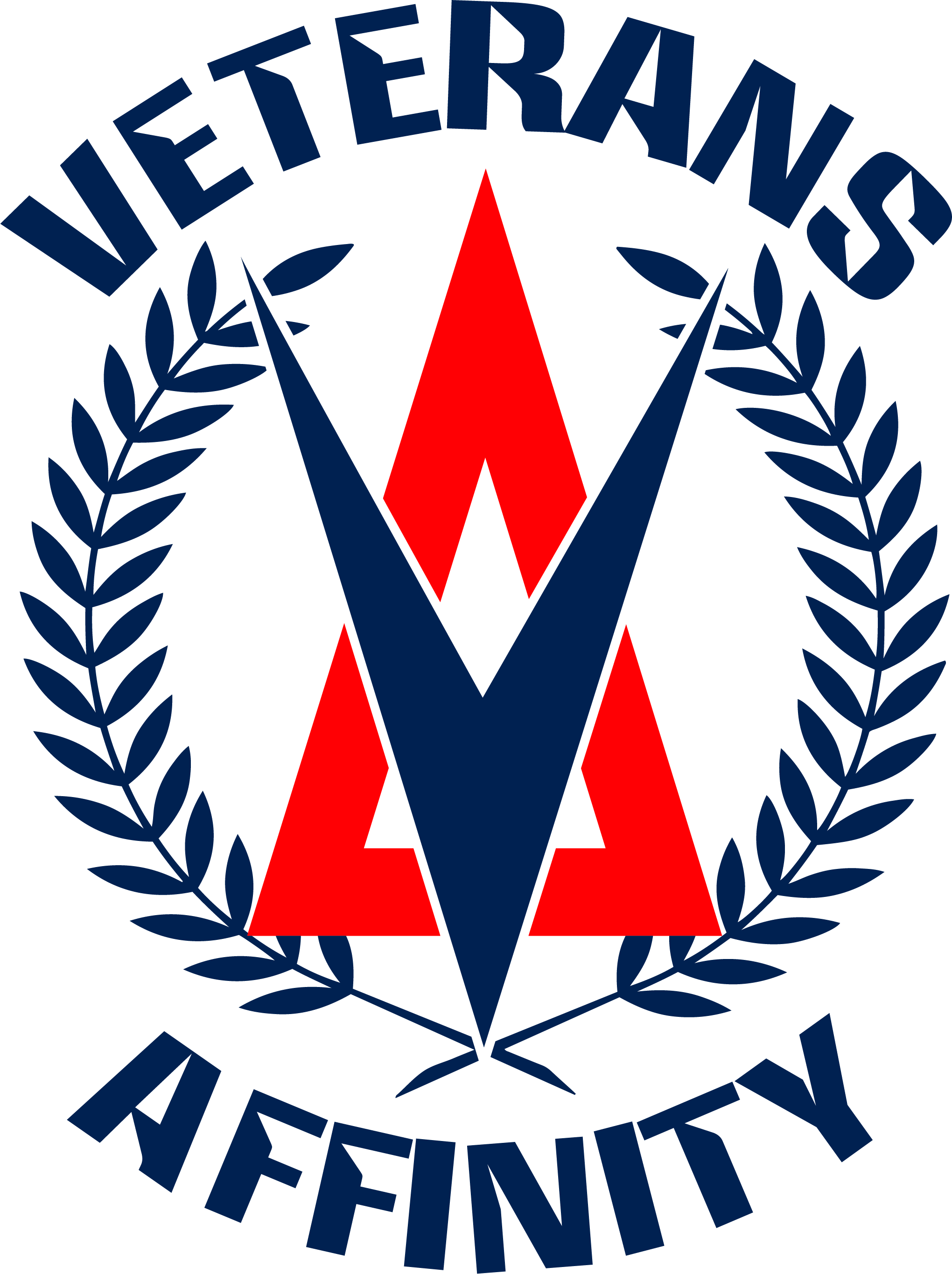Benefits
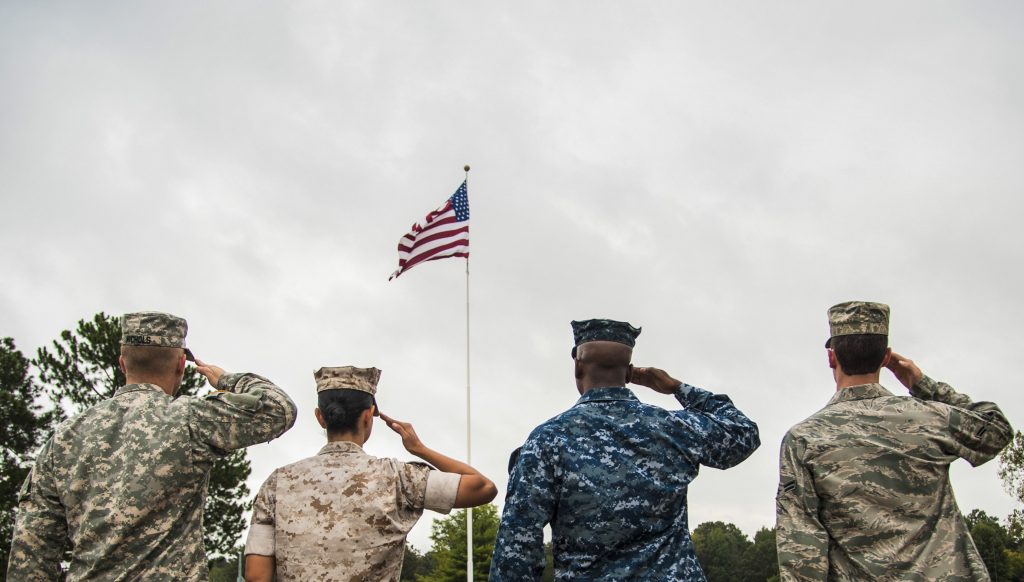
VA Benefits for Service Members
A person who served in the active military, naval, or air service and who was discharged or released under conditions other than dishonorable may qualify for VA health care benefits including qualifying Reserve and National Guard members.
Service Member Benefits: https://www.va.gov/service-member-benefits/
VA Health Benefits
All Veterans receive coverage for most care and services, but only some will qualify for added benefits like dental care. The full list of your covered benefits depends on:
- Your priority group, and
- The advice of your VA primary care provider (your main doctor, nurse practitioner, or physician’s assistant), and
- The medical standards for treating any health conditions you may have
Health Benefits Information: https://www.va.gov/health-care/about-va-health-benefits/
Federal Benefits for Veterans, Dependents and Survivors Handbook
Veterans of the United States armed forces may be eligible for a broad range of benefits and services provided by the U.S. Department of Veterans Affairs (VA). These benefits are codified in Title 38 of the United States Code.
Eligibility for most VA benefits is based upon discharge from active military service under other than dishonorable conditions.
Federal Benefits for Veterans, Dependents and Survivors Handbook: https://www.hqafsa.org/uploads/3/8/9/1/38911523/va_benefits_book.pdf
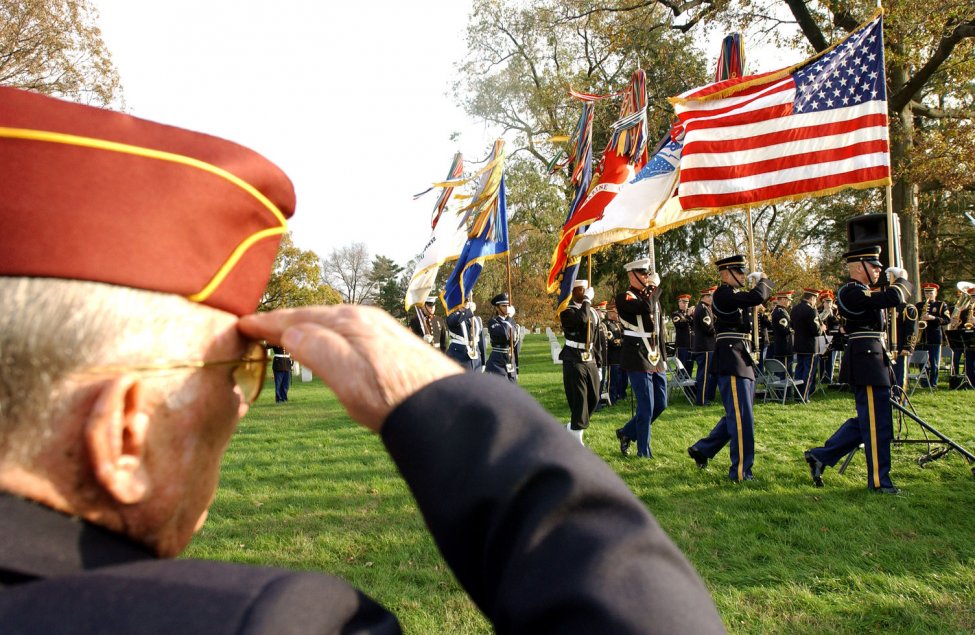
Additional Social Security Benefits for Veterans
Specific Benefit Program Character of Discharge Requirements
Discharge Requirements for Compensation Benefits
To receive VA compensation benefits and services, the Veteran’s character of discharge or service must be under other than dishonorable conditions (e.g., honorable, under honorable conditions, general).
Discharge Requirements for Pension Benefits
To receive VA pension benefits and services, the Veteran’s character of discharge or service must be under other than dishonorable conditions (e.g., honorable, under honorable conditions, general).
Discharge Requirements for Education Benefits
To receive VA education benefits and services through the Montgomery GI Bill program or Post-9/11 GI Bill program, the Veteran’s character of discharge or service must be honorable.
To receive VA education benefits and services through any other VA educational benefits program, including the Survivors’ and Dependents’ Educational Assistance (DEA) program, the Veteran’s character of discharge or service must be under other than dishonorable conditions (e.g., honorable, under honorable conditions, general).
Discharge Requirements for Home Loan Benefits
To receive VA home loan benefits and services, the Veteran’s character of discharge or service must be under other than dishonorable conditions (e.g., honorable, under honorable conditions, general).
Discharge Requirements for Insurance Benefits
Generally, there is no character of discharge bar to benefits to Veterans’ Group Life Insurance. However, for Service Disabled Veterans Insurance and Veterans’ Mortgage Life Insurance benefits, the Veteran’s character of discharge must be other than dishonorable.
Benefits Based on Character of Discharge: https://www.benefits.va.gov/benefits/character_of_discharge.asp
Discharge Upgrade or Correction Process
A discharge upgrade changes the “character of service” shown on your DD-214 discharge certificate. Today, most certificates show the “character of service” as either Honorable, General (Under Honorable Conditions), Other Than Honorable, Bad Conduct or Dishonorable.
NOTE: Even with a less than honorable discharge, you may be able to access some VA benefits through the Character of Discharge review process. When you apply for VA benefits, the VA will review your record to determine if your service was “honorable for VA purposes.” This review can take up to a year. Please provide the VA documents supporting your case, similar to the evidence you’d send with an application to upgrade your discharge.
How to apply: https://www.va.gov/discharge-upgrade-instructions/
Request for Upgrade (Online): https://www.va.gov/resources/request-a-discharge-upgrade-or-correction/

Healthcare Benefits
With VA health care, you’re covered for regular checkups with your primary care provider and appointments with specialists (like cardiologists, gynecologists, and mental health providers). You can access Veterans health care services like home health and geriatric (elder) care, and you can get medical equipment, prosthetics, and prescriptions.
Healthcare Benefits: https://www.va.gov/opa/publications/benefits_book/Chapter_1_Health_Care_Benefits.asp
Eligibility: https://www.va.gov/health-care/eligibility/
Compensation Benefits
VA disability compensation provides monthly benefits to Veterans in recognition of the effects of disabilities, diseases, or injuries incurred or aggravated during active military service. The program also provides monthly payments to surviving spouses, dependent children, and dependent parents in recognition of the economic loss caused by a Veteran’s death during military service or, after discharge from military service, as a result of a service-connected disability. A summary of VA’s disability compensation programs is below.
Disability Compensation
A tax-free monetary benefit paid to Veterans with disabilities that are the result of a disease or injury incurred or aggravated during active military service. The benefit amount is graduated according to the degree of the Veteran’s disability on a scale from 10 percent to 100 percent (in increments of 10 percent). Compensation may also be paid for disabilities that are considered related or secondary to disabilities occurring in service and for disabilities presumed to be related to circumstances of military service, even though they may arise after service. Generally, the degrees of disability specified are also designed to compensate for considerable loss of working time from exacerbations or illnesses.
VA Disability Compensation Info: https://www.va.gov/disability/
Dependency and Indemnity Compensation (DIC)
DIC is a tax-free monetary benefit generally payable to a surviving spouse, child, or parent of Servicemembers who died while on active duty, active duty for training, or inactive duty training, or to survivors of Veterans who died from their service-connected disabilities. Parents DIC is an income-based benefit for parents who were financially dependent on of a Servicemember or Veteran who died from a service-related cause.
DIC Info: https://www.va.gov/disability/dependency-indemnity-compensation/
Special Monthly Compensation
SMC is an additional tax-free benefit that can be paid to Veterans, their spouses, surviving spouses and parents. For Veterans, Special Monthly Compensation is a higher rate of compensation paid due to special circumstances such as the need of aid and attendance by another person or by specific disability, such as loss of use of one hand or leg. For spouses and surviving spouses, this benefit is commonly referred to as aid and attendance and is paid based on the need of aid and attendance by another person.
Current VA Disability Compensation Rates: https://www.va.gov/disability/compensation-rates/
Claims Based on Special Circumstances
Veterans may be eligible for other types of disability compensation once a disability has been determined to be service connected. Special VA disability compensation programs include: individual unemployability, automobile allowance, clothing allowance, prestabilization, hospitalization, convalescence, dental, and birth defects.
Types of Compensation: https://www.benefits.va.gov/COMPENSATION/types-compensation.asp
Special Claims Info: https://www.va.gov/disability/eligibility/special-claims/
VA C-File (Claims)
A VA C-File is a folder created by VA that contains all relevant information on a Veteran. This file is important to have when applying for VA benefits.

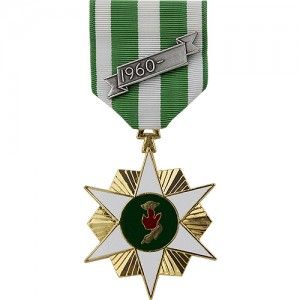
Agent Orange Exposure and VA Disability Compensation
Agent Orange was a tactical herbicide the U.S. military used to clear leaves and vegetation for military operations mainly during the Vietnam War. Veterans who were exposed to Agent Orange may have certain related illnesses.
Below is the latest list from the Veteran’s Administration on presumptive diseases related to exposure to Agent Orange. If you have a disease caused by the exposure to Agent Orange contact a Veterans Service Officer.
Cancers:
Bladder Cancer
Chronic B-cell Leukemia
Hodgkin’s Disease
Multiple Myeloma
Non-Hodgkin’s Lymphoma
Prostate Cancer
Respiratory Cancers including lung cancer
Soft Tissue Sarcomas other that Osteosarcoma, Chondrosarcoma,
Kaposi’s Sarcoma, or Mesothelioma
Other Illnesses:
AL Amyloidosis
Chloracne or similar types of Acneiform disease
Diabetes Mellitus Type 2
Hypothyroidism
Ischemic Heart disease
Parkinson’s disease
Parkinsonism
Peripheral Neuropathy (early onset)
Porphyria Cutanea Tarda
More Information on Agent Orange & Blue Water Requirements: https://www.va.gov/disability/eligibility/hazardous-materials-exposure/agent-orange/
The PACT Act and your VA benefits
The PACT Act is a new law that expands VA health care and benefits for Veterans exposed to burn pits, Agent Orange, and other toxic substances.
The PACT Act adds to the list of health conditions that we assume (or “presume”) are caused by exposure to these substances. This law helps us provide generations of Veterans—and their survivors—with the care and benefits they’ve earned and deserve.
This page will help answer your questions about what the PACT Act means for you or your loved ones. You can also call us at 800-698-2411 (TTY: 711). And you can file a claim for PACT Act-related disability compensation or apply for VA health care now.
All Things PACT Act 101: https://www.va.gov/files/2022-11/PACT%20Act%20Overview%20101_V11.7.22%201600hrs.pdf
More Information: https://www.va.gov/resources/the-pact-act-and-your-va-benefits/
38 Code of Federal Regulations (CFR) Book C, Schedule for Rating Disabilities
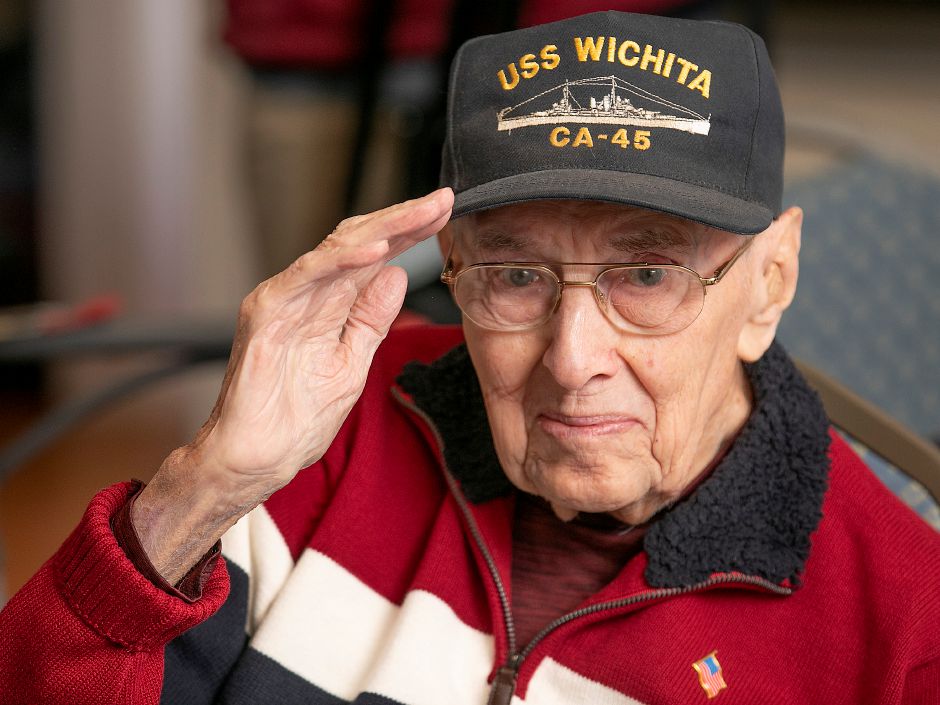


Disability Benefits
There are many VA provided services that vary depending on service connected disability. Below are some common VA services:
Commissary and Exchange Privileges for Veterans & Veteran Caregivers
To gain access to most military bases, Veterans will need a VA issued Veteran Health Identification Card (VHIC) along with a valid state ID, driver’s license or passport. Veteran will need to go the installation’s Pass and ID office for a pass.
Commissary and Exchange Eligibility Info: https://www.va.gov/resources/commissary-and-exchange-privileges-for-veterans/
Information on the VHIC: https://www.va.gov/health-care/get-health-id-card/
For Veteran caregivers, the process is a little longer, but just as easy. Caregivers should have received an eligibility letter from VA’s Office of Community Care. They just need to take this letter and a REAL ID-compliant identification to the base Pass and ID officer.
Once there, credentials showing your registration in the Defense Biometrics Identification System (DBIDS) will be issued to the caregiver. This is good for one year.
Caregiver FACT sheet: https://www.caregiver.va.gov/pdfs/VA-CSP-and-DoD-MWR-FAQs.pdf

Disability Compensation Rates (2023)
View 2023 Veterans disability compensation rates. Use our compensation benefits rate tables to find your monthly payment amount. The VA bases your monthly payment amount on your disability rating and details about your dependent family members.
Monthly Rates: https://www.va.gov/disability/compensation-rates/veteran-rates/
Compensation Rates: https://www.benefits.va.gov/compensation/rates-index.asp
How to Get Increased Disability Compensation
To file for an increase, you normally go through the same procedure you went through when you initially filed for compensation. You will need medical evidence that your condition has gotten worse. This can be from either the VA doctor or a private doctor. You can file your increase request using eBenefits or by filling out a VA Form 21-526EZ.
If you have medical information from a private doctor, you must submit a VA Form 21-4142, which authorizes that doctor to share information with the VA. If you are seeing a civilian doctor as part of the Veterans’ Choice program, you may not need the VA Form 21-4142, but it never hurts to have one on file.
Types of VA disability claims and when to file: https://www.va.gov/disability/how-to-file-claim/when-to-file/
CAUTION: When requesting an increase in your VA disability rating, you are in effect opening up your claim for re-evaluation. The VA can lower or terminate your existing rating. Make sure you have sufficient medical documentation on your injuries or illnesses that supports your decline. NOTE: Veteran should continue treatment through the VA for current rated disabilities before trying to initiate another claim or an increase.
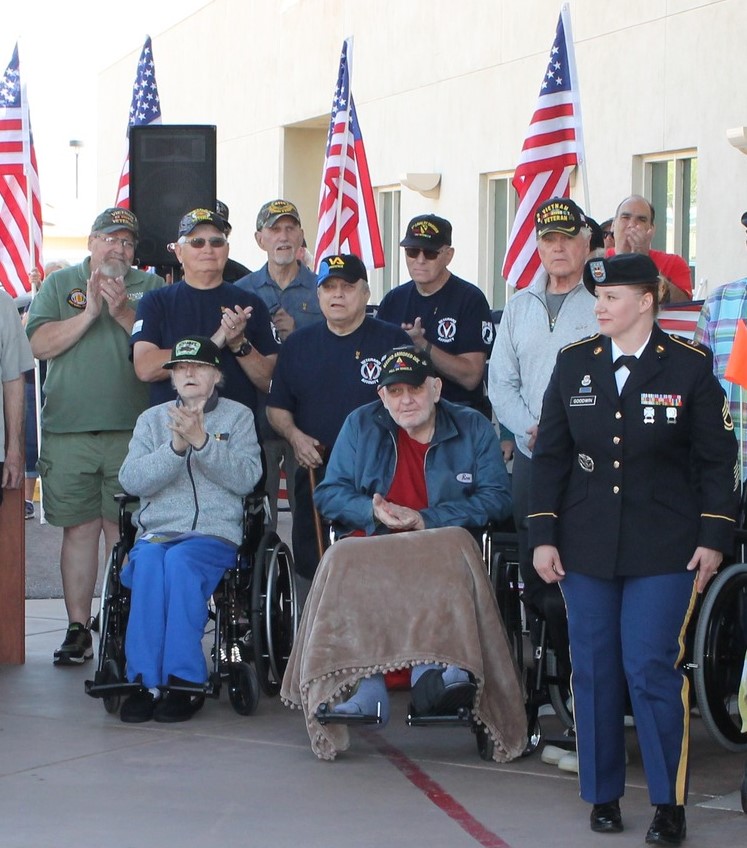
Total Disability Based on Individual Unemployability (TDIU)
If you can’t work because of a disability related to your service in the military (a service-connected disability), you may qualify for what’s called “Individual Unemployability.” This means you may be able to get disability compensation or benefits at the same level as a Veteran who has a 100% disability rating.
Veteran must be unable to hold a job as result of a service connected disability AND have either:
- One disability that is rated over 60 percent or more
- Multiple disabilities, with one disability rated at 40 percent or higher, and a total rating of 70 percent or more.
Factsheet: https://www.benefits.va.gov/BENEFITS/factsheets/serviceconnected/IU.pdf
VA Form 21-8940: https://www.vba.va.gov/pubs/forms/VBA-21-8940-ARE.pdf
More Information: https://www.va.gov/disability/eligibility/special-claims/unemployability/
Pension Benefits
The Veterans Pension program provides monthly payments to wartime Veterans who meet certain age or disability requirements, and who have income and net worth within certain limits. Find out if you’re eligible for this benefit.
- Do NOT have a Dishonorable Discharge
- Your yearly family income and net worth meet certain limits set by Congress. Your net worth includes all personal property you own (except your house, your car, and most home furnishings), minus any debt you owe. Your net worth includes the net worth of your spouse (see pension rates below).
- Served in a Wartime Period (see wartime periods below)
- Are at least 65 years old, or
- Have a permanent and total disability, or
- Are a patient in a nursing home for long-term care because of a disability, or
- Are getting Social Security Disability Insurance or Supplemental Security Income
Veterans Pension Eligibility: https://www.va.gov/pension/eligibility/
Pension Benefits Factsheet: https://www.benefits.va.gov/BENEFITS/factsheets/limitedincome/pensionprogram-and-representation.pdf
Pension Application: https://www.va.gov/pension/application/527EZ/introduction
VA Form 21P-527EZ: https://www.vba.va.gov/pubs/forms/VBA-21P-527EZ-ARE.pdf
Pension Rates (2023)
View current VA pension rates for Veterans, including VA Aid and Attendance rates. If you qualify for these benefits, we’ll base your payment amount on the difference between your countable income and a limit that Congress sets (called the Maximum Annual Pension Rate, or MAPR).
From December 1, 2022, to November 30, 2023, the net worth limit to be eligible for Veterans Pension benefits is $150,538.
COMMON ASSETS:
- Investments
- Furniture
- Boats
- Additional Cars
ASSETS DO NOT INCLUDE:
- Primary Residence
- Primary Car
How VA determines the asset amount for pension net worth determinations: https://www.ecfr.gov/cgi-bin/text-idx?SID=40dea8cb19546b52be72d830a97cf55c&mc=true&node=se38.1.3_1275&rgn=div8
Wartime Periods
The National Defense Service Medal (NDSM) is awarded to anyone who has served on active duty, or as an active reservist, in the United States Armed Forces during a specified wartime period.
VA uses wartime periods for pension benefits, regardless if Veteran was in a combat zone or not. Under current law, the VA recognizes the following wartime periods to decide eligibility for VA pension benefits:

Under current law, the VA recognizes the following wartime periods to decide eligibility for VA pension benefits:
- Mexican Border period (May 9, 1916, to April 5, 1917, for Veterans who served in Mexico, on its borders, or in adjacent waters)
- World War I (April 6, 1917, to November 11, 1918)
- World War II (December 7, 1941, to December 31, 1946)
- Korean conflict (June 27, 1950, to January 31, 1955)
- Vietnam War era (November 1, 1955, to May 7, 1975, for Veterans who served in the Republic of Vietnam during that period. August 5, 1964, to May 7, 1975, for Veterans who served outside the Republic of Vietnam.)
- Gulf War (August 2, 1990, through a future date to be set by law or presidential proclamation)
VA Aid & Attendance Benefits and Housebound Allowance
The Aid and Attendance Pension provides benefits for Veterans and surviving spouses who require the regular attendance of another person to assist in the following Activities of Daily Living (ADL).
- Eating (feeding): The ability to feed oneself.
- Bathing: The ability to clean oneself and perform grooming activities
like shaving and brushing teeth. - Dressing: The ability to get dressed by oneself without struggling with buttons and zippers.
- Toileting: The ability to get on and off the toilet.
- Continence: The ability to control one’s bladder and bowel functions.
- Transferring (mobility): Being able to either walk or move oneself from a bed to a wheelchair and back again.
VA Aid and Attendance or Housebound benefits provide monthly payments added to the amount of a monthly VA pension for qualified Veterans and survivors. Must also meet asset limits and wartime periods (see above).
Aid & Attendance and Housebound Allowance Information and Application: https://www.va.gov/pension/aid-attendance-housebound/
Aid & Attendance (Pension) Benefit Scams
Veterans and spouses, look out for these signs of possible Aid and Attendance benefit scams:
- Offers to “look and see” if you are eligible for the Aid & Attendance pension for a fee
- Offers to file an application to get you benefits or increase your pension for a fee
- Claims to get you benefits faster for a fee
- Advice to hide or rearrange assets to qualify for a VA pension.
Contact us if you have any questions or need further guidance. You can also contact the VA directly at (800) 827-1000 if you have questions about any VA benefits
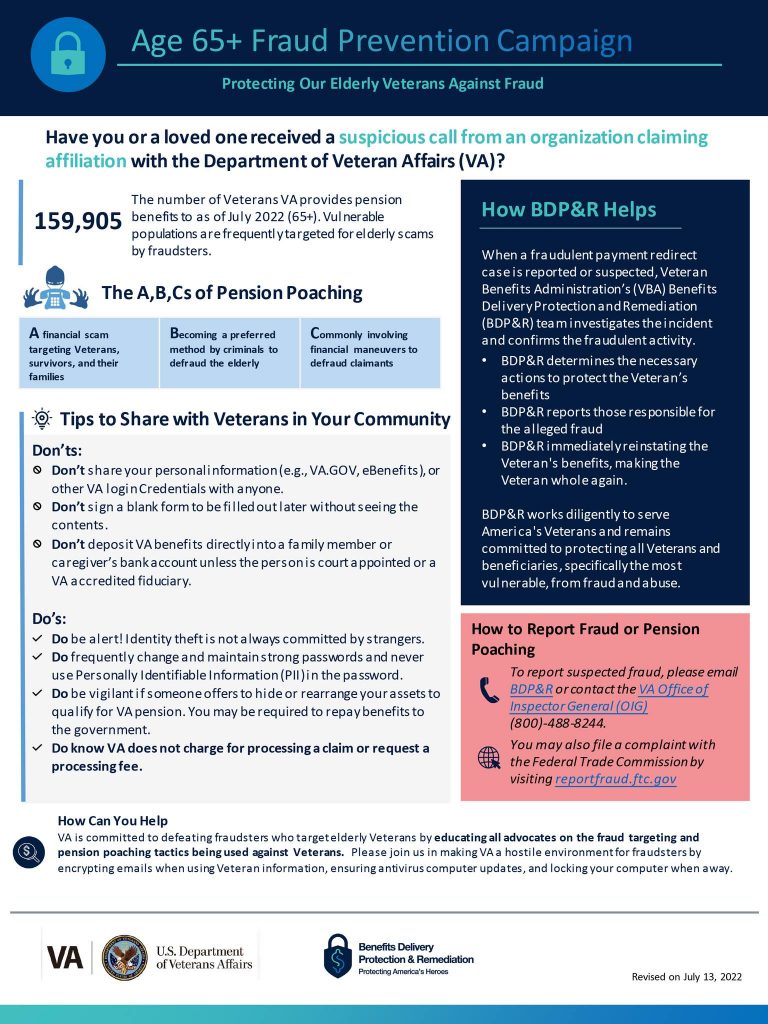
Fraud Prevention: Stop a Scam
Veterans, especially elderly Veterans, need to be careful NOT to fall victim to predatory actions by potential fraudsters. Never share your personal information or VA logins (e.g., VA.GOV, eBenefits) with anyone.
Stay alert! Fraud is not always committed by strangers.
Pension Poaching: https://www.benefits.va.gov/BENEFITS/factsheets/limitedincome/pension-poaching.pdf
Learn to Spot Scammers: https://news.va.gov/105618/pension-poaching-learn-to-spot-scammers-and-who-you-can-trust-for-support/
To Report VA Fraud or Pension Poaching, contact the VA Office if Inspector General (OIG) (800) 488-8244
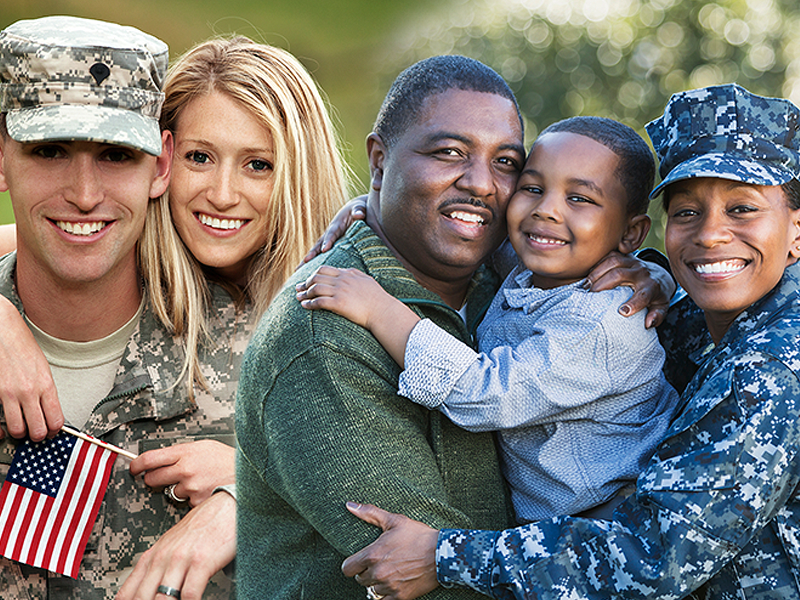
Family Member Benefits
As the spouse or dependent child of a Veteran or service member, you may qualify for certain benefits, like health care, life insurance, or money to help pay for school or training. As the survivor of a Veteran or service member, you may qualify for added benefits, including help with burial costs and survivor compensation.
If you’re caring for a Veteran, you may also be eligible for support to help you better care for the Veteran—and for yourself. Find out which benefits you may qualify for and how to access them.
Family Member Benefits: https://www.va.gov/family-member-benefits/
The Veterans Benefits Administration offers a variety of benefits and services to spouses, children, and parents of Servicemembers and Veterans who are deceased or totally and permanently disabled by a service-connected disability.
https://www.va.gov/opa/persona/dependent_survivor.asp
Benefits for a Spouse of a Disabled Veteran: https://www.military.com/benefits/disabled-veteran-spouse-benefits.html
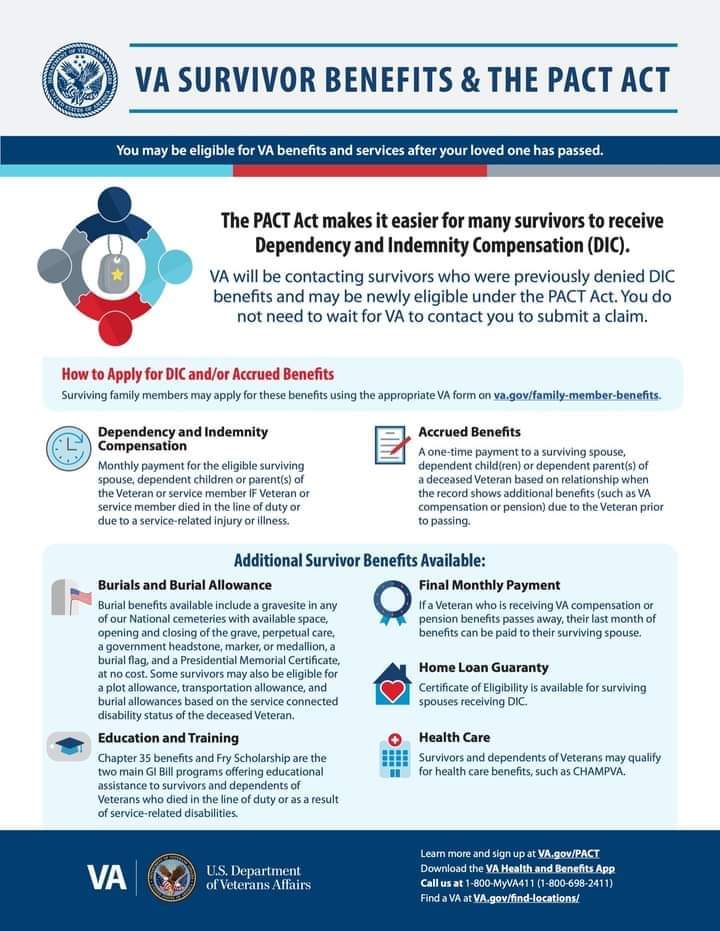
VA Insurance Benefits
As part of the VA mission to serve Servicemembers, Veterans, and their Families, VA provides valuable life insurance benefits to give you the peace of mind that comes with knowing your family is protected. VA’s life insurance programs were developed to provide financial security for your family given the extraordinary risks involved in military service.
Do you Qualify for VA Insurance?
Follow this link for an easy way to find out if you are eligible for all our programs, including Service Disabled Veterans Insurance (S-DVI), Veterans Group Life Insurance and Family SGLI, TSGLI, and Veterans Mortgage Life Insurance. You’ll find infographics (timelines and charts) for each program.
VA Insurance Info: https://www.benefits.va.gov/insurance/
Survivor Benefit Program (SBP)
The Survivor Benefit Plan is a Department of Defense sponsored and subsidized program that provides up to 55 percent of a service member’s retired pay to an eligible beneficiary upon the death of the member. The program provides no-cost automatic coverage to members serving on active duty, and reserve component members who die of a service connected cause while performing inactive duty training.
In addition, active duty members can purchase coverage upon retirement and reserve component members can elect coverage when they have 20 years of qualifying service for reserve retired pay. The cost for spouse-only SBP coverage is 6.5% of your base (gross) pay. The premiums will be automatically deducted by DFAS from your monthly retirement check.
For more information: https://militarypay.defense.gov/Benefits/Survivor-Benefit-Program/Overview/

Reporting a Veteran’s Death
The first step to receiving assistance and benefits for a Veteran’s death is to report it to the appropriate agencies.
Notify the VA:
- If the Veteran was receiving VA healthcare, disability compensation or a pension, call the Veterans Benefits Administration (VBA) at (800) 827-1000.
- To terminate VA compensation payments call (877) 838-2778
- If the Veteran was enrolled in a VA-sponsored life insurance policy, call the VA at (800) 669-8477.
Social Security can be notified by calling (800) 772-1213.
The Defense Enrollment Eligibility Reporting System (DEERS) can be notified by calling (800) 538-9552.
If the Veteran is also retired military, the Defense Finance and Accounting Service (DFAS) should be notified by calling the Retiree Casualty Section of the DFAS at (888) 332-7411.
If the Veteran is also a current or retired federal civilian employee, the Office of Personnel Management (OPM) should be notified by calling (888) 767-6738.
Survivor Benefit Program (SBP)
The Survivor Benefit Plan is a Department of Defense sponsored and subsidized program that provides up to 55 percent of a service member’s retired pay to an eligible beneficiary upon the death of the member. The program provides no-cost automatic coverage to members serving on active duty, and reserve component members who die of a service connected cause while performing inactive duty training.
In addition, active duty members can purchase coverage upon retirement and reserve component members can elect coverage when they have 20 years of qualifying service for reserve retired pay. The cost for spouse-only SBP coverage is 6.5% of your base (gross) pay. The premiums will be automatically deducted by DFAS from your monthly retirement check.
For more information: https://militarypay.defense.gov/Benefits/Survivor-Benefit-Program/Overview/
Burial Benefits
Service-related Death
VA will pay up to $2,000 toward burial expenses for deaths on or after September 11, 2001, or up to $1,500 for deaths prior to September 11, 2001. If the Veteran is buried in a VA national cemetery, some or all of the cost of transporting the deceased may be reimbursed.
Non-service-related Death
VA will pay up to $796 toward burial and funeral expenses for deaths on or after October 1, 2019 (if hospitalized by VA at time of death), or $300 toward burial and funeral expenses (if not hospitalized by VA at time of death), and a $796 plot-interment allowance (if not buried in a national cemetery).
For deaths on or after December 1, 2001, but before October 1, 2011, VA will pay up to $300 toward burial and funeral expenses and a $300 plot-interment allowance. For deaths on or after April 1, 1988 but before October 1, 2011, VA will pay $300 toward burial and funeral expenses (for Veterans hospitalized by VA at the time of death).
Burial Benefits and Eligibility: https://www.benefits.va.gov/compensation/claims-special-burial.asp
Apply Online: https://www.va.gov/burials-memorials/
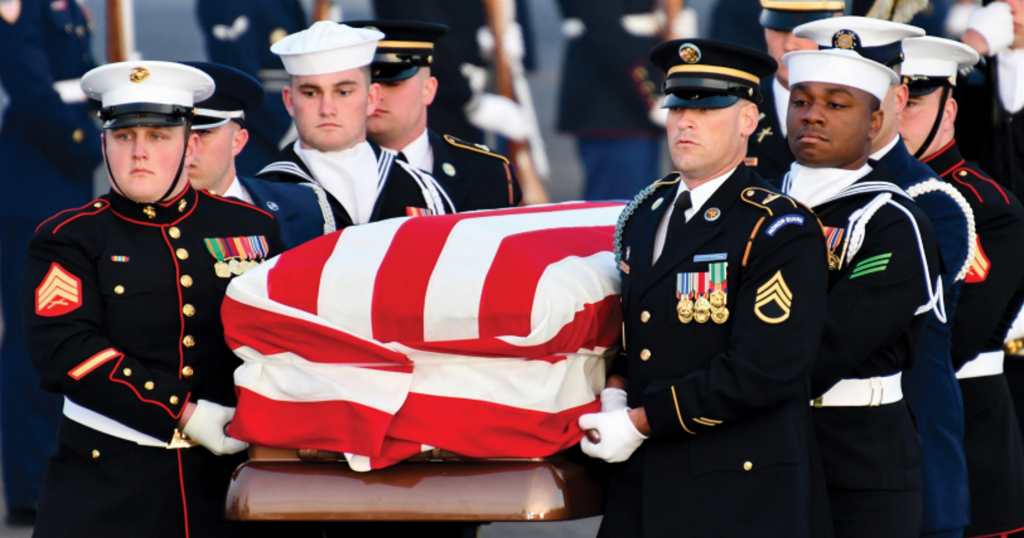
Eligibility for Burial in a VA National Cemetery
Veterans, service members, and some family members may be eligible for burial in a VA national cemetery.
VA National Cemetery Eligibility: https://www.va.gov/burials-memorials/eligibility/
National Cemetery Scheduling Office: (800) 535-1117
Arlington National Cemetery ‘s eligibility requirements for burial and inurnment are different from other national cemeteries that are maintained by the Department of Veterans Affairs. Eligibility for in-ground burial at Arlington National Cemetery is the most stringent of all U.S. national cemeteries. However, most veterans who have at least one day of active service (other than for training) and an honorable discharge are eligible for above-ground inurnment. Eligibility is determined at the time of need.
Arlington National Cemetery Eligibility: https://www.arlingtoncemetery.mil/funerals/scheduling-a-funeral/establishing-eligibility
For more information on eligibility or time of need, contact Arlington National Cemetery at (877) 907-8585.
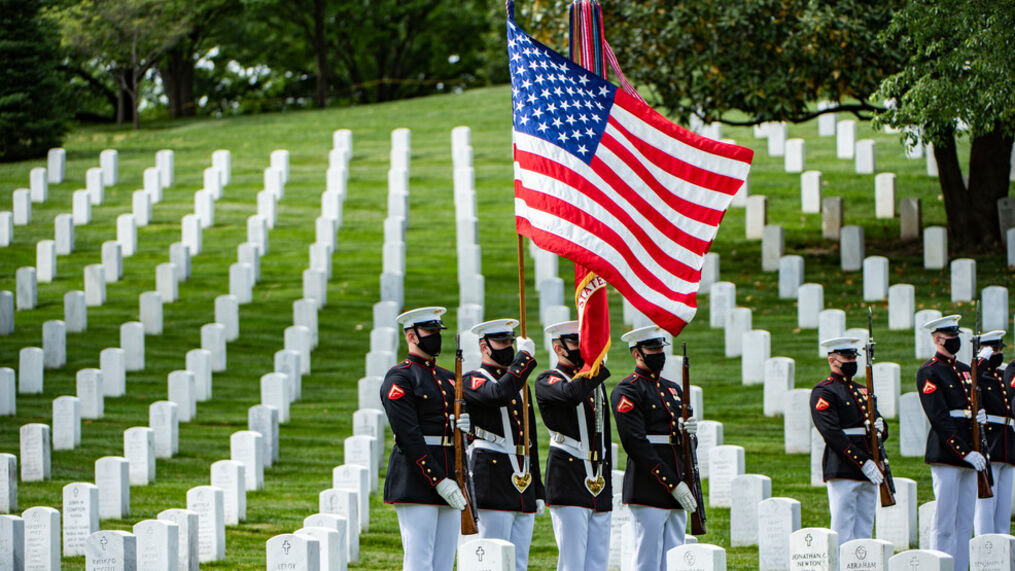
Military Funeral Honors
Rendering military funeral honors is one way to show the nation’s deep gratitude to those who, in times of war and peace, have faithfully defended our country. This ceremonial paying of respect is the final demonstration a grateful nation can provide and it is our commitment to recognize the sacrifice and contributions of our nation’s veterans.
By law, an honor guard detail for the burial of an eligible veteran consists of at least two members of the U.S. armed forces, and at least one member of the detail must be a representative from the deceased veteran’s service branch. The honor detail performs a ceremony that includes the playing of taps and the folding and presentation of the American flag to the next of kin. Your funeral director can help you request military funeral honors.
Military Funeral Honors Eligibility: https://www.militaryonesource.mil/military-life-cycle/veterans-military-funeral-honors/eligibility/
Military Funeral Honors: https://www.militaryonesource.mil/leaders-service-providers/casualty-assistance/military-funeral-honors/
Military Funeral Honors Directory by State: https://download.militaryonesource.mil/12038/MOS/MOS_PDFs/military-funeral-honors-directory.pdf
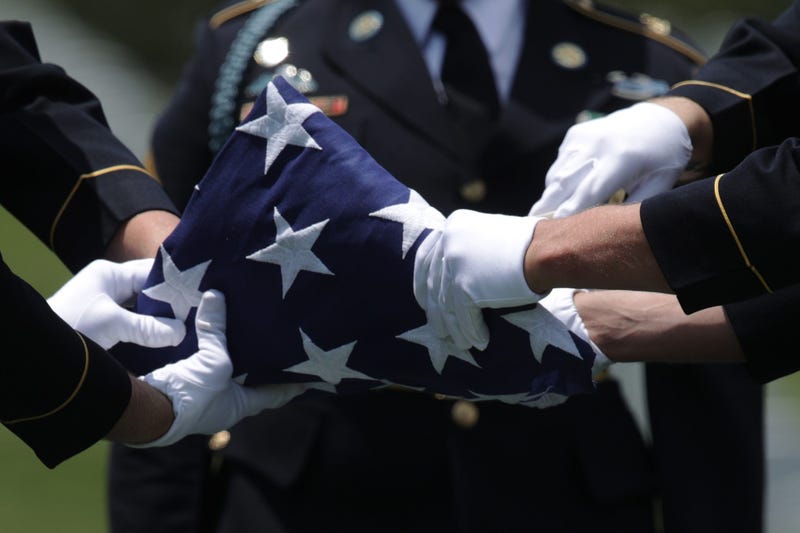
Office of Survivors Assistance
For assistance or to ask questions about your claim status please call the Veterans Benefits Administration national call center. The call center may be reached by dialing : (800) 827-1000.
Survivors Assistance FAQs: https://www.va.gov/survivors/faqs.asp
Survivor (Widow) Benefits
CHAMPVA: https://www.va.gov/health-care/family-caregiver-benefits/champva/
CHAMPVA Fact Sheets: https://www.va.gov/COMMUNITYCARE/pubs/factsheets.asp#champva
Education Benefits (Chapter 35): https://www.va.gov/education/survivor-dependent-benefits/
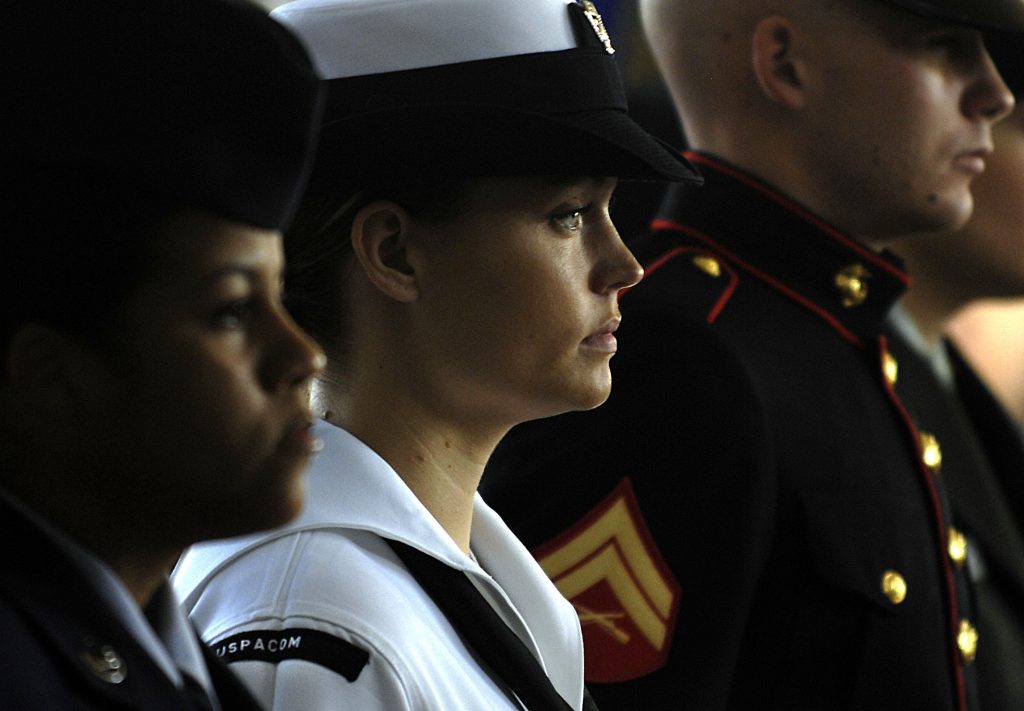
Additional Earned Benefits
VA Home Loan: https://www.benefits.va.gov/homeloans/
GI Bill: https://www.va.gov/education/about-gi-bill-benefits/
Veterans’ Group Life Insurance (VGLI): https://www.va.gov/life-insurance/options-eligibility/vgli/
Space Available Flights
Service members and their families, military retirees, and 100 percent disabled Veterans can use Space-Available flights – formally known as Military Airlift Command or MAC flights – to travel around the country and world at little to no cost. Though sometimes unpredictable, military flights are perfect for families with flexible plans and limited travel budgets.
Space-A Travel: https://www.amc.af.mil/Home/AMC-Travel-Site/AMC-Space-Available-Travel-Page/
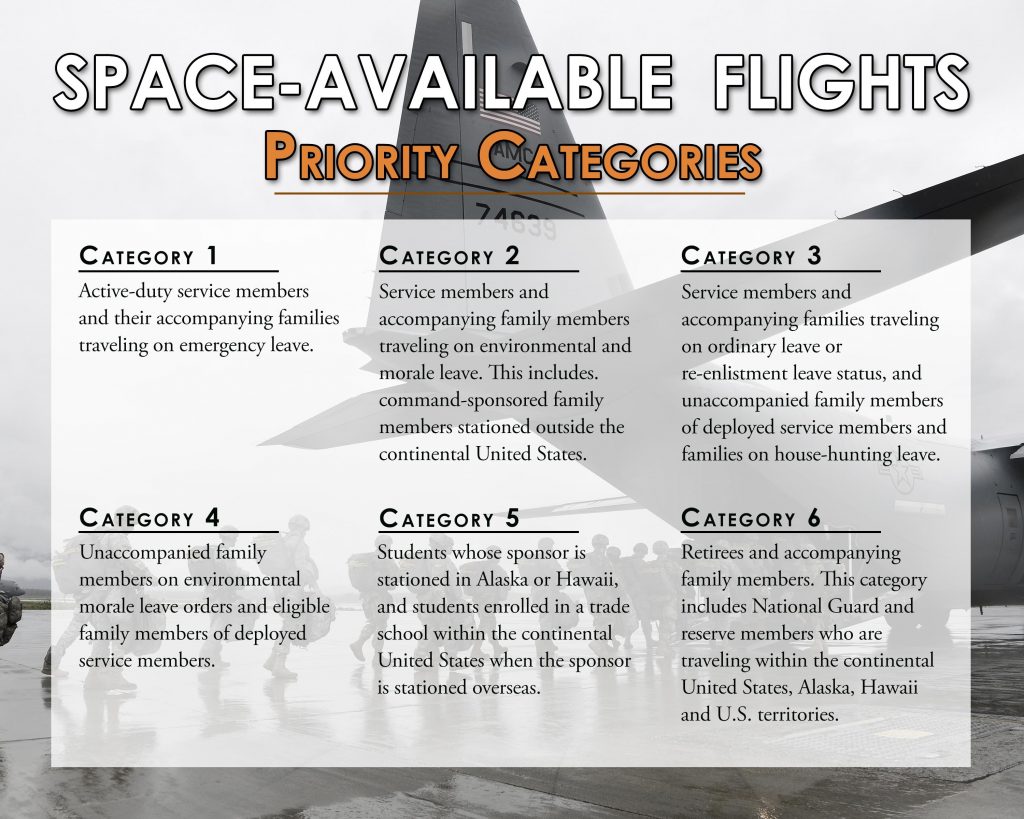
Veterans Service Organizations (VSO)
VSO assistance will vary depending on the agency, but in general these agencies may offer claims assistance with VA benefits including education, home loan information, medical claims, career and transition assistance, job training, even substance abuse counseling or referrals to qualified counselors. These services are always FREE. Click on each VSO for more information.
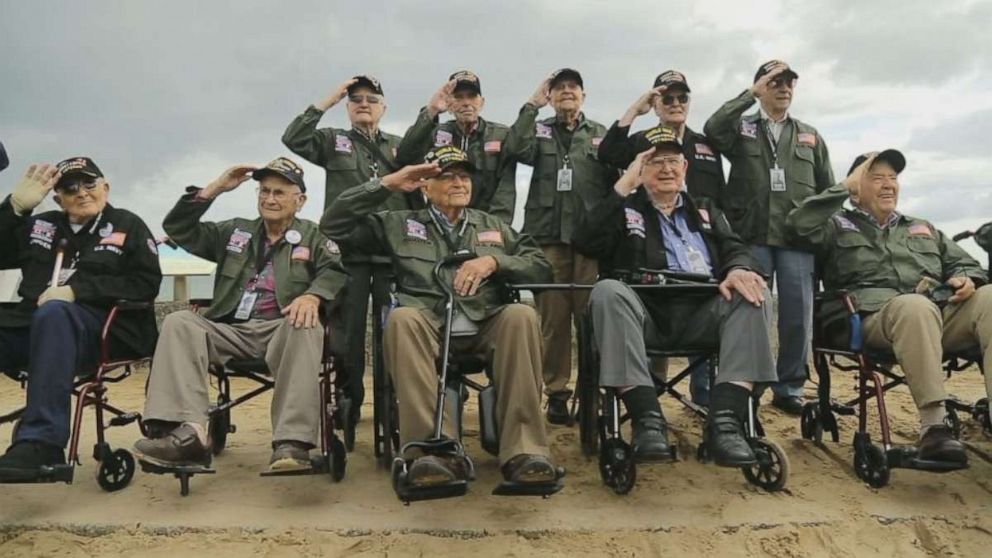
Discharge Upgrade or Correction Process
A discharge upgrade changes the “character of service” shown on your DD-214 discharge certificate. Today, most certificates show the “character of service” as either Honorable, General (Under Honorable Conditions), Other Than Honorable, Bad Conduct or Dishonorable.
NOTE: Even with a less than honorable discharge, you may be able to access some VA benefits through the Character of Discharge review process. When you apply for VA benefits, the VA will review your record to determine if your service was “honorable for VA purposes.” This review can take up to a year. Please provide the VA documents supporting your case, similar to the evidence you’d send with an application to upgrade your discharge.
Request for Upgrade (Online): https://www.va.gov/resources/request-a-discharge-upgrade-or-correction/
